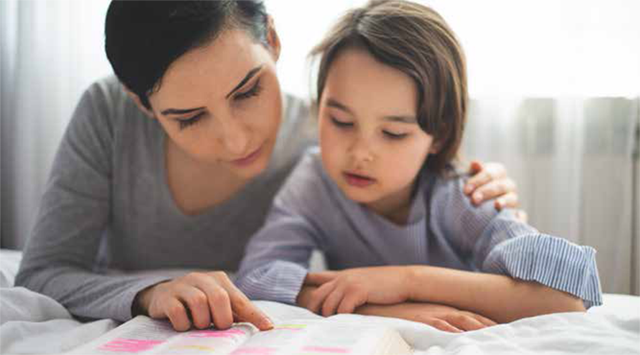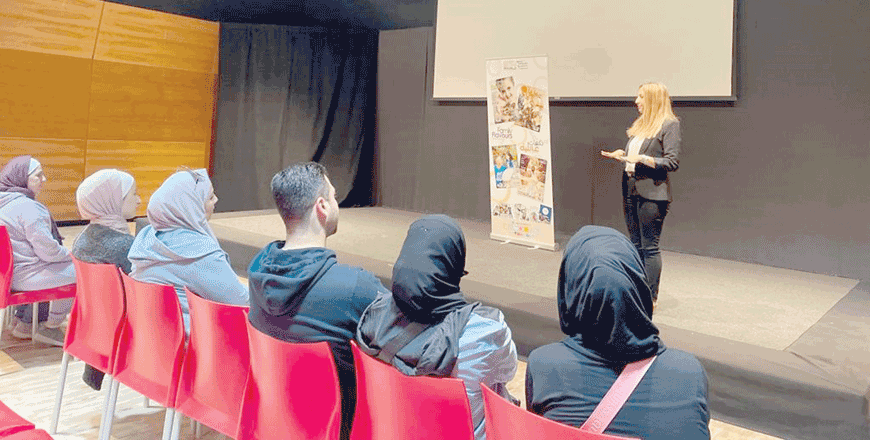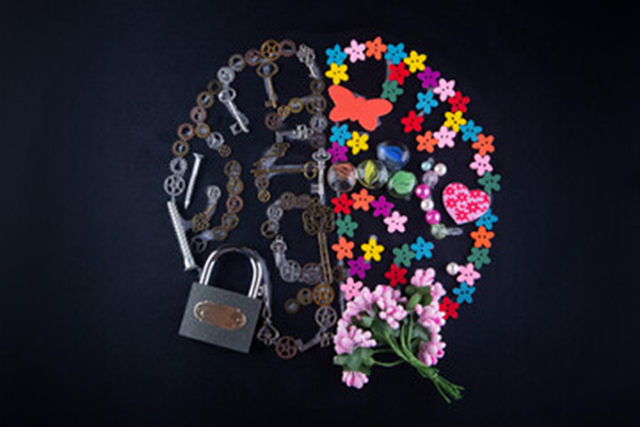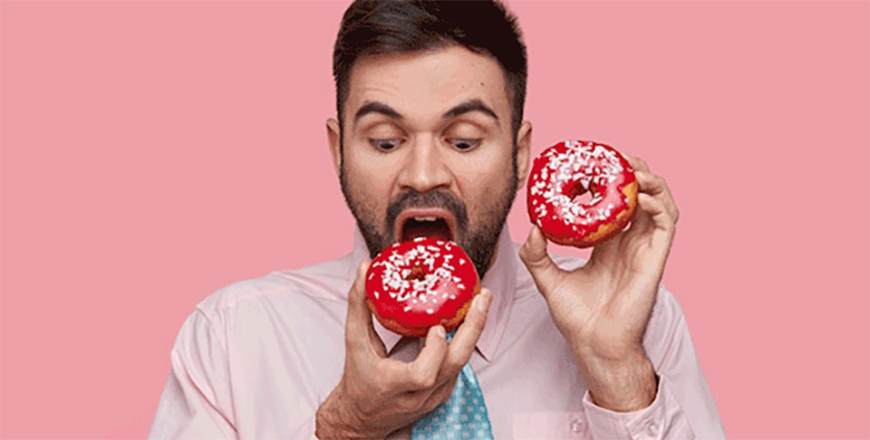You are here
Conscious parenting helps stop dysfunctional relational patterns
By Rania Sa’adi , Family Flavours - Nov 20,2022 - Last updated at Nov 20,2022

Photo courtesy of Family Flavours magazine
By Rania Sa’adi
Licensed Rapid Transformational Therapist and Clinical Hypnotherapist
Have you reflected on how your childhood experiences have shaped your parenting beliefs and practices? Are you intentional about not repeating dysfunctional relational patterns with your child?
Traditional Parenting
Traditional parenting is based on the idea that we must fix our children. Discipline them until they meet our image of what our child should be. We tend to parent the same way our parents and grandparents raised their kids. We tweak and update a little, but the mainframe stays the same.
Parents are masters of projection. We project onto our kids our fears, failed attempts and unattained opportunities and try to fulfil or prevent them, depending on the situation, through our children’s lives. It is as if we, parents, have a second chance, through their lives, to make it right.
Conscious Parenting
Conscious Parenting invites us to look inwards. What has shaped our parenting style and practices today based on our childhood and life experiences? Reflecting upon and resolving our issues is the first step toward a clean slate in parenting, without the excess baggage we unintentionally transfer to our kids.
Conscious parenting calls for complete and utter attunement to your child’s needs, embracing their talents, skills and strengths without our projection or judgement. It isn’t about allowing our children to do whatever they want or letting them walk all over us. Conscious parenting involves ongoing self-reflection so we can be aware of how our upbringing and inner state affect how we parent.
Assessing your level of self understanding
When we start looking inwards and are truthful with ourselves, we gain better insight into our parenting choices and sometimes mistakes. Start by asking yourself some questions:
•Am I building unrealistic expectations in my children based on what society and culture dictate, or based on their skills, capabilities, talents and needs?
•Am I forcing my child to be part of a particular activity because it was my dream as a child and I never had the chance to do it, or because our child actually loves it?
•Am I pushing our child to pursue a specific career to take over the business I have established because it was my passion and I hate to see it go to waste, or because it is our child’s as well?
•Am I opposing our son or daughter’s marriage because of what I think might or might not make them happy?
No one denies the advantage of age and experience parents hold, but our experiences are not for our kids to live, but for us to learn from and use to influence and guide but not control their lives.
As parents, we feel the need to protect our children from going through the hardship we went through. We love them dearly and want to prevent any hurt or pain. But the truth is, ups and downs are a normal part of life. Plus, children do not learn from advice, but from doing and experiencing, just as we did.
Who are we to deprive them of that journey of growth and enrichment? They have the right to go through their own mistakes and learn from them, forging their identity and finding their personality while we are there for them, guiding, influencing, supervising and picking them up when they fall. That, in my view, is the highest form of acceptance and support.
Reprinted with permission from Family Flavours magazine
Related Articles
AMMAN — Child anxiety, stress, self-esteem, values and identity were the focus of an interactive discussion between parents and Rania Sa’adi
By Rania Sa’adiLicensed Rapid Transformational Therapist and Clinical Hypnotherapist Do you feel stuck in life and wish to make a posit
Addiction by definition is anything that takes you away from pain and towards pleasure; this includes any behaviour, not just substances. Some of the most common addictions are to drugs, nicotine, alcohol, gambling, gaming, shopping and sugar, among others.














